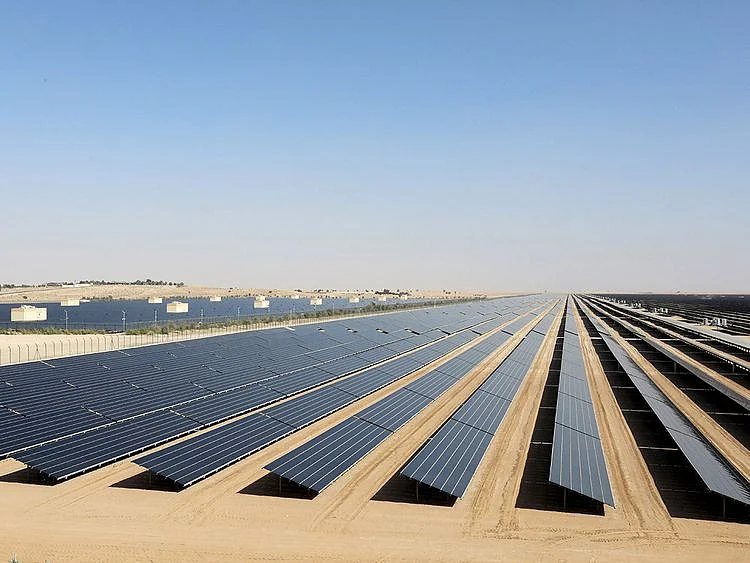UAE’s clean energy push needs a constantly updated digital infrastructure
Digital-led infrastructure can provide the much-needed networks to speed up transition

In October last, when the UAE pledged to invest more than Dh600 billion in clean and renewable energy by 2050, it was not only making a concerted effort towards combating climate change but also leading the conversation on building a sustainable economy in a digital era.
A few weeks later, when the Emirates announced its commitment to net zero emissions by 2050, it not only became the first nation in the Gulf to do so, but was also laying the foundation as a global center for clean energy and a green economy. Over the last 15 years, the UAE has invested $40 billion in clean energy to advance its sustainable growth goals and build a future around renewable energy resources.
With the introduction of the ‘Energy Strategy 2050’, the country could become one of the key contributors to the global renewable energy market. The Strategy seeks to target an energy mix that combines renewable, nuclear and clean energy sources to meet economic requirements and environmental goals. It aims to increase the contribution of clean energy in the total mix from 25 per cent to 50 per cent by 2050 and reduce carbon footprint of power generation by 70 per cent, thus saving Dh700 billion by 2050.
If UAE’s recent efforts are any indication, the country is very much on the right track in fulfilling its ambitious vision within the next three decades.
Robust infrastructure
Pursuing clean energy goals though requires a robust end-to-end infrastructure covering data, security and cloud solutions. This is because energy requirement, as laid out in the UAE energy strategy, is based on supply and demand, and needs to be balanced by efficient storage to be accessed when needed.
Having an efficient storage capability and the right infrastructure to reduce operational costs and simplify compliance will help deliver the scalability the nation needs to meet its clean energy targets.
The great news for clean energy production is that the UAE is already well-placed to meet this challenge. For instance, the UAE is now home to three of the world’s largest and lowest-cost solar plants – including Noor Abu Dhabi, the world’s largest stand-alone operational solar power plant. Similarly, the country’s first nuclear power plant, Barakah, has been connected to the national grid and set to produce 14 GW of clean energy by 2030, up from about 100 MW in 2015.
The success of these initiatives stands as a testament to what can be achieved when UAE put its mind to it. The nation already offers incredible opportunities with its highly competitive digital infrastructure and has been making considerable strides in the renewable energy sector through digitisation. By harnessing technologies such as artificial intelligence, cloud, data analysis and Internet of Things, it will be able to fully optimise the potential of renewable energy, increasing operational efficiencies and climate change goals.
Digital acceleration also demands a well-defined cyber security makeover amidst a wave of digital transformation projects. Security is critical as cyber-attacks can be a significant hindrance in deriving better sustainable outcomes. The renewable energy sector is strategically focused on ‘doing more with less’ and a robust infrastructure will ultimately have a substantial impact on how the sector operates and delivers on set outcomes.
Shaping COP28 agenda
Experts believe clean energy has the potential to replace fossil fuels fully, and will define how the Emirates creates economic value over the next 50 years. In 2023, as the UAE opens doors to international delegates as the COP28 host, it stands as an advocate and a champion for cost-efficient renewable energy. Technology will underpin these efforts and continue to be at the forefront of a greener tomorrow.
Network Links
GN StoreDownload our app
© Al Nisr Publishing LLC 2026. All rights reserved.